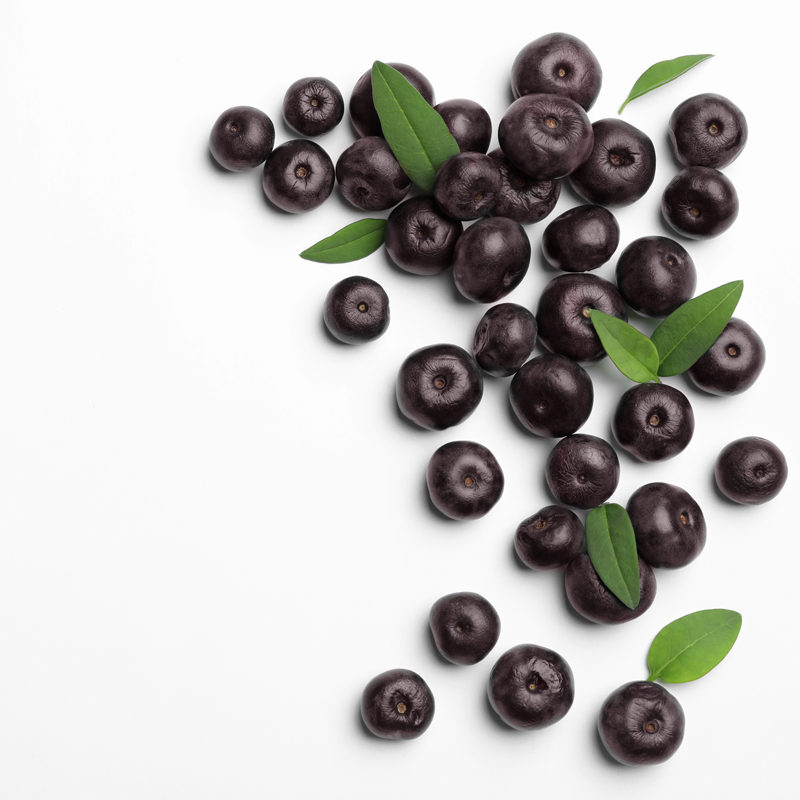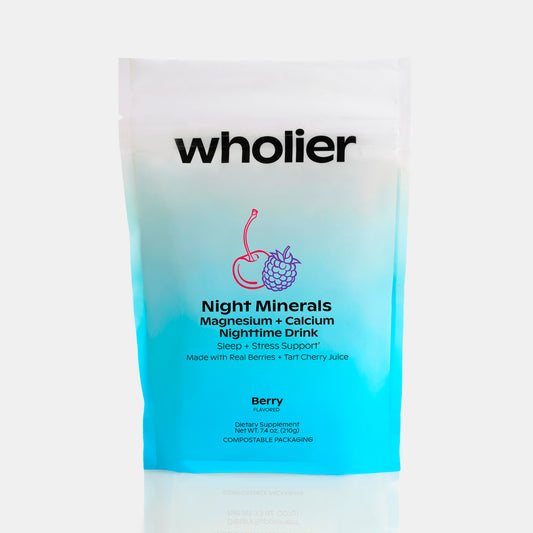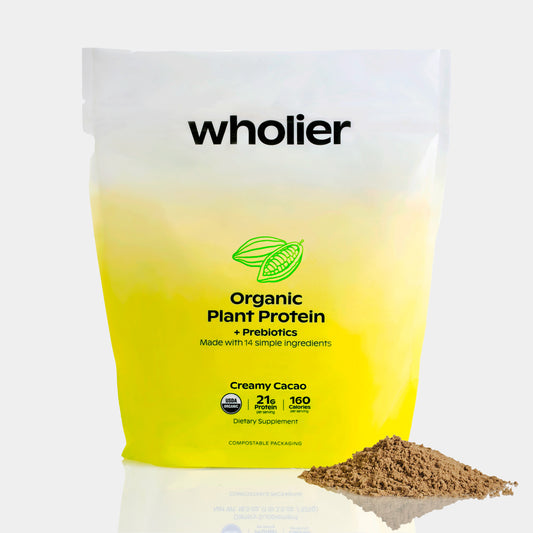
What are Superfoods? Exploring their Health Benefits
Discover the truth behind superfoods, their health benefits, and whether they are truly necessary for a healthy diet.
Superfoods have been touted as the ultimate health food, with claims of boosting energy, aiding weight loss, and preventing diseases such as cancer and heart disease. But what exactly are superfoods, and do they live up to the hype? In this article, we'll take a closer look at what superfoods are, give some common and unique examples of superfoods, and examine the scientific research behind their supposed benefits.
What are Superfoods?
Superfoods are a group of nutrient-rich foods that are believed to have exceptional health benefits due to their high nutritional value. They are typically plant-based, although some animal-based foods, such as fatty fish, are also considered superfoods.
There is no official definition of the term "superfood," and it's important to note that the term is a marketing term rather than a scientific one. Essentially, any food that is perceived to have exceptional health benefits beyond its basic nutritional value can be classified as a superfood.
What are Some Examples of Superfoods?
Here are some of the most common superfoods:
Berries
Berries, such as blueberries, strawberries, and raspberries, are high in antioxidants, which are believed to protect the body against free radicals that can damage cells and contribute to aging and disease (1). They are also a good source of fiber, vitamin C, and other nutrients.
Leafy Greens
Leafy greens, such as kale, spinach, and Swiss chard, are packed with nutrients such as vitamins A, C, and K, as well as calcium and iron (2). They are also low in calories and high in fiber, making them an excellent choice for weight management.
Nuts and Seeds
Nuts and seeds, such as almonds, walnuts, and chia seeds, are high in healthy fats, protein, and fiber. They are also a good source of vitamins and minerals, such as vitamin E and magnesium (3).
Quinoa
Quinoa is a gluten-free grain that is high in protein, fiber, and several vitamins and minerals, including iron and magnesium (5). It is also a good source of antioxidants, which may protect against chronic diseases such as cancer and heart disease.
Here are some less common superfoods that are emerging in the nutrition and wellness world:
Maca
Maca is a root vegetable that is native to the Andes mountains in South America. It is high in several vitamins and minerals, including vitamin C, copper, and iron (6). It is also believed to have several health benefits, such as reducing inflammation and improving mood and energy levels.
Acai
Acai berries are a type of fruit that is native to the Amazon rainforest in Brazil. They are high in antioxidants, fiber, and heart-healthy fats (7). They are also believed to have several health benefits, such as reducing inflammation and improving cholesterol levels.
Spirulina
Spirulina is a type of blue-green algae that is high in protein, vitamins, and minerals, such as iron and magnesium (8). It is also a good source of antioxidants, which may help protect against chronic diseases such as cancer and heart disease.
The Science Behind Superfoods
While many superfoods are indeed nutrient-dense and offer health benefits, it's important to understand that they are not a magic cure-all. Here are some of the benefits that have been attributed to superfoods, along with the scientific research behind them:
Improved Heart Health
Several superfoods, such as nuts, have been linked to improved heart health. For example, a study published in the New England Journal of Medicine found that people who ate fish regularly had a lower risk of heart disease than those who did not (9). Another study found that eating nuts regularly was associated with a lower risk of heart disease (10). However, it's important to note that the benefits of these foods may be due to their overall healthy nutrient profile, rather than any one specific component.
Reduced Inflammation
Many superfoods, such as berries and leafy greens, are high in antioxidants, which are believed to reduce inflammation in the body. Inflammation has been linked to several chronic diseases, including heart disease and cancer (11). A study published in the Journal of the Academy of Nutrition and Dietetics found that a diet high in antioxidant-rich fruits and vegetables was associated with lower levels of inflammation in the body (12).
Weight Loss
While no single food can cause weight loss on its own, some superfoods may be helpful in a weight loss diet. For example, a study published in the journal Nutrients found that chia seeds helped reduce appetite and increase feelings of fullness in overweight adults (13). Another study found that eating avocados regularly was associated with a lower body mass index (BMI) and a reduced risk of obesity (14).
It's important to note that while these studies suggest a potential link between superfoods and health benefits, more research is needed to fully understand these relationships. It's also important to focus on an overall healthy diet that includes a variety of nutrient-dense foods, rather than relying on any one superfood.
What Should You Eat Instead of Superfoods?
While superfoods can be a healthy addition to your diet, they are by no means necessary for good health. In fact, many common foods, such as fruits, vegetables, whole grains, and lean proteins, can provide similar health benefits without the high price tag of superfoods.
Here are some healthy foods that you can eat instead of superfoods:
Fruits and Vegetables
Fruits and vegetables are packed with nutrients such as vitamins, minerals, and antioxidants. Aim for a variety of colors to ensure you are getting a range of nutrients.
Whole Grains
Whole grains, such as brown rice, quinoa, and whole wheat bread, are high in fiber and other nutrients such as iron and magnesium.
Lean Proteins
Lean proteins such as tofu, and legumes provide a good source of protein without the high saturated fat content found in some animal-based proteins.
Superfoods can be a healthy addition to your diet, but they are not necessary for good health. Many common foods can provide similar health benefits without the high cost associated with superfoods. It's important to focus on an overall healthy diet that includes a variety of nutrient-dense foods, rather than relying on any one superfood. And always remember, there is no single food that can replace a healthy, balanced diet and lifestyle.
Sources:
(1) Wu X, Beecher GR, Holden JM, Haytowitz DB, Gebhardt SE, Prior RL. Lipophilic and hydrophilic antioxidant capacities of common foods in the United States. J Agric Food Chem. 2004;52(12):4026-4037. doi:10.1021/jf049696w
(2) Ware M. 13 healthful high-fat foods. Medical News Today. https://www.medicalnewstoday.com/articles/323743. Published 2019. Accessed March 18, 2021.
(3) Ros E. Health benefits of nut consumption. Nutrients. 2010;2(7):652-682. doi:10.3390/nu2070652
(4) Mozaffarian D, Rimm EB. Fish intake, contaminants, and human health: evaluating the risks and the benefits. JAMA. 2006;296(15):1885-1899. doi:10.1001/jama.296.15.1885
(5) Martinez-Flores HE, Garza-Juárez A, Loarca-Piña G, et al. Quinoa (Chenopodium quinoa Willd.), from nutritional value to potential health benefits: an integrative review. J Med Food. 2020;23(2):107-122. doi:10.1089/jmf.2019.0146
(6) Gonzales GF. Ethnobiology and ethnopharmacology of Lepidium meyenii (Maca), a plant from the Peruvian highlands. Evid Based Complement Alternat Med. 2012;2012:193496. doi:10.1155/2012/193496
(7) Schauss AG, Wu X, Prior RL, et al. Antioxidant capacity and other bioactivities of the freeze-dried Amazonian palm berry, Euterpe oleraceae mart. (acai). J Agric Food Chem. 2006;54(22):8604-8610. doi:10.1021/jf0609779
(8) Khan Z, Bhadouria P, Bisen PS. Nutritional and therapeutic potential of Spirulina. Curr Pharm Biotechnol. 2005;6(5):373-379. doi:10.2174/138920105774370607
(9) Mozaffarian D, Lemaitre RN, King IB, et al. Circulating long-chain omega-3 fatty acids and incidence of congestive heart failure in older adults: the cardiovascular health study: a cohort study. Ann Intern Med. 2011;155(3):160-170. doi:10.7326/0003-4819-155-3-201108020-00005
(10) Jiang R, Manson JE, Stampfer MJ, et al. Nut and peanut butter consumption and risk of type 2 diabetes in women. JAMA. 2002;288(20):2554-2560. doi:10.1001/jama.288.20.2554
(11) Tabas I, Glass CK. Anti-inflammatory therapy in chronic disease: challenges and opportunities. Science






